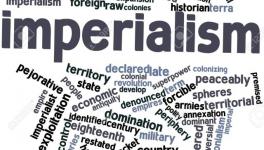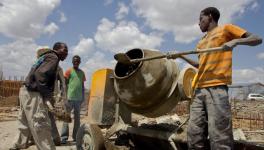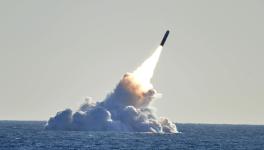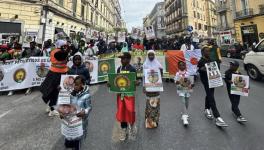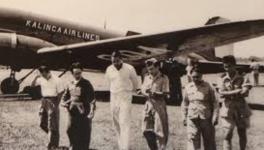How NAM Changed International Relations: Part 1
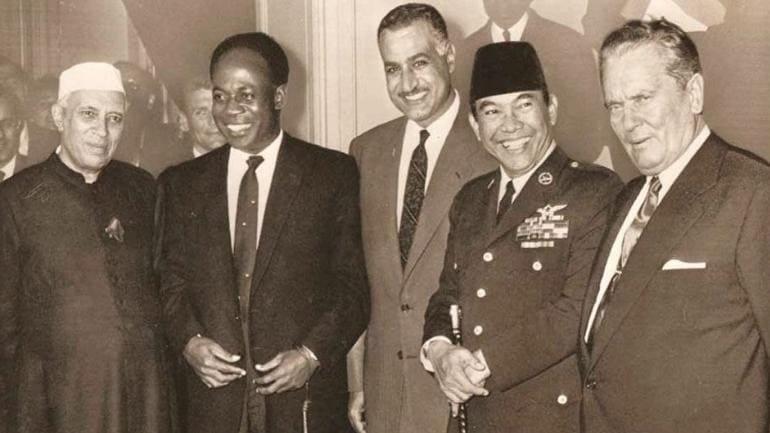
Image Courtesy: India Today
The Belgrade Declaration, adopted at the first NAM Conference on 6 September 1961 and the McCloy-Zorin Accords on General and Complete Disarmament signed between the United States and the USSR in New York on 20 September 1961, have much in common. Inputs from the Belgrade Declaration greatly influenced the final version of the McCloy-Zorin Accords, a very powerful joint statement. Unfortunately, the likely adverse impact that the implementation of the Agreed Principles would have had on the fortunes of the military-industrial complex provoked strong counter-reactions from the powers that be. As a result, over the last sixty years, instead of initiating action as per the Agreed Principles, the establishment within the United States and the USSR made systematic, calculated moves to erase the McCloy-Zorin Accords even from public memory.
Similarly, the Non-Aligned Movement (NAM) was effectively derailed and considerably weakened after subversive forces successfully pitted NAM members against each other or engineered regime changes. Although NAM stands in disarray, how it evolved is a testimony to the potential it still has to steer international relations. If and when concerned people of the world demand concerted action based on the Agreed Principles, NAM—by playing a crucial role in advancing the cause of disarmament and peace—can still become a powerful force to challenge the interests of the military-industrial complex that dominates the world.
Evolution of NAM
The tenets of NAM evolved over a long period. One of the prime movers behind its evolution was undoubtedly Jawaharlal Nehru, who later became the first Prime Minister of India. Nehru was in Europe for nearly two years during 1925-’27 and had the opportunity to interact with several European political workers and movements and other Asian, African and Latin American nationalists then living in exile or visiting Europe. He was not just a participant on behalf of the Indian National Congress at the first International Congress Against Colonial Oppression and Imperialism held in Brussels from 10 to 14 February 1927. He was also one of its principal organisers. The conference was attended by 174 delegates representing 134 organisations from 34 countries—mainly from Asia, Africa and Latin America. Several well-known personalities of the period like Clara Zetkin, Romain Rolland, Maxim Gorky, MK Gandhi, Upton Sinclair, Albert Einstein, Madame Sun Yat-Sen, Ernst Toller and others had also sent messages of support. It was when the League Against Imperialism and for National Independence was formed at the culmination of the conference—with Nehru one of the members of its executive committee—that organised opposition to colonialism and imperialism began in a concerted way.
Nehru’s thoughts were firmly moulded by the deliberations at the 1927 Congress, where he interacted with JT Gumede (then president of the African National Congress, South Africa), Mohammed Hatta (later the Vice-President of Indonesia), Liau Hansin (CEC member, Kuomintang, China), Messali Hadj (Algerian nationalist), Henri Barbusse (French writer), Fenner Brockeway (British anti-colonial activist) and a host of others. By taking the initiative to express solidarity with other anti-colonial and anti-imperialist movements, while being at the forefront of the Indian national movement, Nehru gradually became a prominent Indian statesman with international stature.
The major foreign policy decision that Nehru, as head of India’s interim government, made was his declaration that India would not join groups of states that were aligned against each other but would strive to establish friendly relations with all countries. During a radio address on 7 September 1946, Nehru said, "We propose, as far as possible, to keep away from the power politics of groups aligned against one another, which have led in the past to world wars and which may again lead to disasters on an even vaster scale…The world, in spite of its inner rivalries and hatreds and inner conflict, moves inevitably towards closer cooperation and the building up of a world commonwealth. It is for this One World that free India will work, a world in which there is the free cooperation of free peoples, and no class or group exploits another."
In all probability, Nehru must have been trying to repair the damage caused by Winston Churchill’s confrontational rhetoric on 5 March 1946 at Fulton, Missouri, USA, after Churchill had lost his premiership following the defeat of the Conservative Party in July 1945. Churchill’s speech sought to portray the world as divided between Western and Eastern spheres of influence, i.e., "Christian civilisation" versus "Communism", and he had emphasised the need for "settlement" of the threat posed by "communism" without further delay. In his provocative speech, Churchill said, "…the Communist parties or fifth columns constitute a growing challenge and peril to Christian civilisation... We should be most unwise not to face them squarely while time remains... Our difficulties and dangers will not be removed by closing our eyes to them. They will not be removed by mere waiting to see what happens; nor will they be removed by a policy of appeasement. What is needed is a settlement, and the longer this is delayed, the more difficult it will be and the greater our dangers will become."
It is in this context that Nehru’s speech of 7 September 1946 gains added significance. Nehru opposed nations joining opposing camps and pitting themselves against one another.
Asian Relations Conference
To assist the evolution of a common foreign policy, the first Asian Relations Conference was held at a non-governmental level under the auspices of the Indian Council of World Affairs (ICWA) in Delhi from 23 March to 2 April 1947. Over 250 delegates from 28 countries attended it, including government representatives such as the then prime minister of Indonesia and prominent figures from some Asian republics of the former Soviet Union. Observers from the United Nations, the Arab League, and research institutions in Australia, Britain, USA and USSR also attended. The decision of all major Asian nations barring Japan, which was then under US occupation, to attend the conference was a heartening sign. It signalled their high regard for the firm anti-colonial and anti-imperialist stand of the Indian National Congress and the deep faith they reposed in India’s then interim government, formed on 2 September 1946. On 23 March 1947, in his welcome address, “A United Asia for World Peace”, Nehru, as head of the interim government, underlined the main objective of the conference. He said, “We have arrived at a stage in human affairs when the ideal of that One World and some kind of a world federation seems to be essential though there are many dangers and obstacles in the way. We should work for that ideal and not any grouping which comes in the way of this larger world group.”
Fully concurring with Nehru, Mahatma Gandhi, in his address during the closing plenary of the conference on 2 April 1947, said,
“Of course, I believe in One World. And how can I possibly do otherwise… The West today is in despair of multiplication of atom bombs, because a multiplication of atom bombs means utter destruction, not merely of the West, but it will be a destruction of the world… It is up to you to deliver the whole world, not merely Asia but deliver the whole world, from that wickedness, from that sin.”
That is the ideal the Asian Relations Conference tried to convey to the world through its participants—the oneness of humanity and the need to end all war. It is, therefore, very apparent that the Partition of India that the British Administration had engineered intended to wreck that ideal.
Conference on Indonesia
The non-aligned and internationalist character of independent India’s foreign policy was first demonstrated when the International Conference on Indonesia was convened in Delhi from 20 to 23 January 1949. Indonesia was under the occupation of the Dutch for nearly 118 years before Japan occupied it in 1942. Indonesia attained independence on 17 August 1945, with the surrender of Japan at the end of WW II. However, Holland’s attempt to restore the colonial rule in Indonesia by armed force on the night of 19 December 1948 sent alarm signals across the newly-decolonised countries about the possible threat of recolonisation. Jogjakarta, the Indonesian capital, was seized by Dutch paratroopers and president Sukarno, prime minister Mohammed Hatta, and other members of the Indonesian government were arrested and confined on an isolated island.
Nehru sharply denounced Holland’s action and described it as naked and brazen aggression. He decided to close all Indian seaports and airports to Dutch vessels and aircraft. It is in response to Burmese prime minister U Nu’s proposal that Nehru decided to organise an international conference. Nineteen countries, including Australia and New Zealand, attended it. The Delhi Conference condemned the Dutch aggression and demanded immediate release of the arrested members of the Indonesian government, withdrawal of Dutch troops from Jogjakarta and transfer of power to the United States of Indonesia by 1 January 1950.
Consequently, hostilities ended on 7 May 1949, after India transmitted the Conference Resolution to the UN Security Council on 24 January, followed by Security Council intervention on 28 January 1949. An agreement was signed to hold further negotiations at a round table conference under the auspices of the United Nations to end Dutch colonialism in Indonesia formally. The Conference on Indonesia clearly demonstrated India’s stature as an able mediator in settling international disputes.
The author is joint secretary, Delhi Science Forum, and member, National Coordination Committee, Coalition for Nuclear Disarmament and Peace. The views are personal.
(This is the first in a series on the Non-Aligned Movement. The following part will be published on 19 November 2021.)
Get the latest reports & analysis with people's perspective on Protests, movements & deep analytical videos, discussions of the current affairs in your Telegram app. Subscribe to NewsClick's Telegram channel & get Real-Time updates on stories, as they get published on our website.












